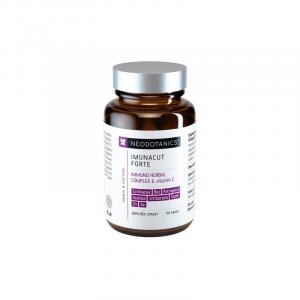
How a Viral Infection Affects Your Health and How to Defend Against It

When a Virus Knocks on the Door - What Really Brings Us Down and How to Recognize It?
Autumn, winter, and increasingly even spring - the seasons when one infection after another spreads through kindergartens, schools, and offices. We hear the word virus more often than ever. Doctors often use it as a general term for viral diseases that cannot be precisely diagnosed without laboratory tests. But what exactly is a virus? And how can we tell if it's a common cold, flu, or perhaps a stomach virus?
What is a Virus and Why Does it Knock Us Down Annually?
The term "virus" is a simplified medical term used for infections caused by viruses. It can be a common cold, but also bronchitis, flu, or even some types of tonsillitis. Viruses spread through droplets, contact, or contaminated surfaces, and since it is not a bacterial infection, antibiotics are unnecessary in these cases.
Many people ask: How long does a virus last? The answer is not straightforward, as it depends on the specific virus type, the patient's immune system, and the course of the illness. Generally, it is assumed to last 5 to 10 days, with some symptoms, especially cough or fatigue, potentially lasting longer.
Try our natural products
Current Viruses and Their Symptoms
Each season brings with it a different "mix" of viral illnesses. In spring and autumn, respiratory viruses are common, manifesting as a runny nose, sore throat, cough, and sometimes a fever. In winter, flu viruses are added, which often start suddenly with a high fever, muscle, and joint pain. Summer months may occasionally bring stomach viruses, also known as "summer flu."
One of the currently widespread phenomena is viruses that manifest as so-called tonsil stones. These are white or yellowish spots that may mistakenly appear as bacterial tonsillitis. The difference between a viral and bacterial infection can often only be determined by the overall clinical picture and a possible throat swab. Doctors, therefore, recommend not panicking and not demanding antibiotics "just in case."
According to data from the National Institute of Public Health, rhinoviruses, adenoviruses, and enteroviruses are spreading this season. The first cause the common cold, the second can have a more complicated course and affect the eyes or digestive tract. Enteroviruses are the main culprits in children, where they can cause stomach flu, rashes, or even meningitis - although this is very rare in our conditions.
Stomach Virus - Rapid Onset, Slow Recovery
When we talk about viruses that "do not manifest as a runny nose," we often mean a stomach virus - colloquially called "stomach flu." In reality, it has nothing to do with the flu. The most common culprits are noroviruses, rotaviruses, or adenoviruses, which cause a sudden onset of vomiting, diarrhea, abdominal pain, and often fever.
While in children, the course is more frequent and sometimes more severe due to rapid dehydration, adults usually overcome the illness during 2-3 days of intense course and a subsequent few days of recovery. The experiences of mothers of young children often speak for themselves - "on Sunday the child vomits, on Monday the mother, on Tuesday the father" - viruses are relentless and spread very easily.
Hand hygiene, frequent ventilation, and thorough washing of fruit and vegetables can significantly reduce the risk of transmission. Unfortunately, even careful prevention is not a 100% guarantee, as some viruses survive on surfaces for several days.
Virus or Tonsillitis? When Tonsil Stones Appear
One of the most common reasons for visiting a doctor in children is a sore throat associated with white spots on the tonsils - so-called tonsil stones. These can accompany both viral infections and bacterial tonsillitis, sometimes complicating the diagnosis. The key difference, however, lies in the accompanying symptoms.
In a viral infection, a sore throat is usually accompanied by a runny nose, cough, or conjunctivitis. The fever is mild or absent. In contrast, bacterial tonsillitis (most commonly caused by streptococcus) brings high fever, significant pain when swallowing, and sometimes swollen neck glands. The doctor usually performs a throat swab in case of suspected tonsillitis, or a CRP test from a drop of blood, to decide if antibiotics are really necessary.
It is fascinating that even among doctors there are different approaches - while some administer antibiotics sooner rather than later, others choose a wait-and-see tactic and recommend rest, plenty of fluids, and supportive treatment.
How to Deal with a Virus and What Really Helps?
The treatment of viruses is primarily symptomatic. This means focusing on alleviating symptoms - reducing fever, relieving pain, supporting immunity, and getting plenty of rest. Natural remedies, such as ginger tea, honey, onion syrup, or gargling with saline, are suitable. Dietary supplements containing vitamin C, zinc, and echinacea can help shorten the duration of the illness, but a miraculous cure for viruses does not yet exist.
Especially in children, it is important to ensure sufficient fluid intake, as dehydration can complicate the course of the illness. In the case of stomach viruses, it is advisable to use probiotics, which help regenerate the intestinal flora and shorten the duration of diarrhea.
One of the proven approaches is the so-called BRAT diet - bananas, rice, apples, and toast - foods that do not burden the digestive tract and at the same time provide the necessary energy. It is also advisable to include strong broth, or fermented foods.
Can a Virus Last Longer Than a Week?
Yes, and it is not unusual. Although most viral infections subside within a few days, residual symptoms such as cough, fatigue, or mild sore throat can persist for 2-3 weeks. However, if the condition worsens or new symptoms appear (e.g., severe chest pain, shortness of breath, rash, or dehydration), it is necessary to see a doctor. It is often a bacterial superinfection that requires antibiotic treatment.
The quote from one general practitioner sums it up perfectly: "The best treatment for a virus is rest, tea, and patience. Antibiotics are like a hammer on a mosquito. Sometimes they help, but mostly they unnecessarily destroy the whole house."
Prevention as the Best Medicine
No article about viruses would be complete without mentioning prevention. Regular hand washing, ventilation, and strengthening immunity are the basics. It pays to maintain a healthy diet, get enough sleep, and exercise in the fresh air. During periods of increased infection occurrence, preventive administration of natural immunostimulants such as beta-glucans, sea buckthorn, or garlic can be considered.
An example from practice? A family with young children who started regularly including fermented foods, such as homemade kefir, sauerkraut, or miso soup, noted fewer absences in kindergarten and work in the following season. Immunity is simply a system that needs training - and viruses are unfortunately one of its "teachers."
And so, the next time the first sneeze echoes on the tram or a child returns from kindergarten with shiny eyes and a runny nose, it will be no surprise. The virus is with us, whether we like it or not. What we can influence, however, is how we respond to it - with understanding, calm, and a bit of natural wisdom.







